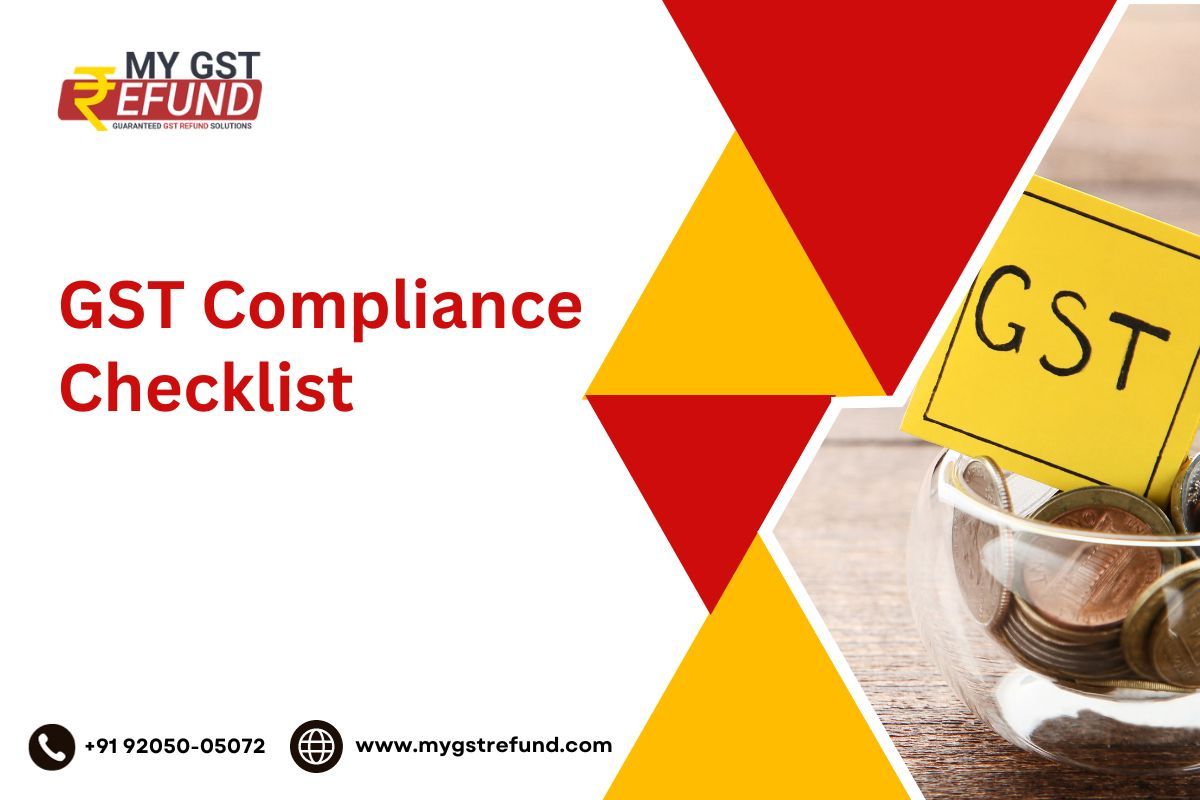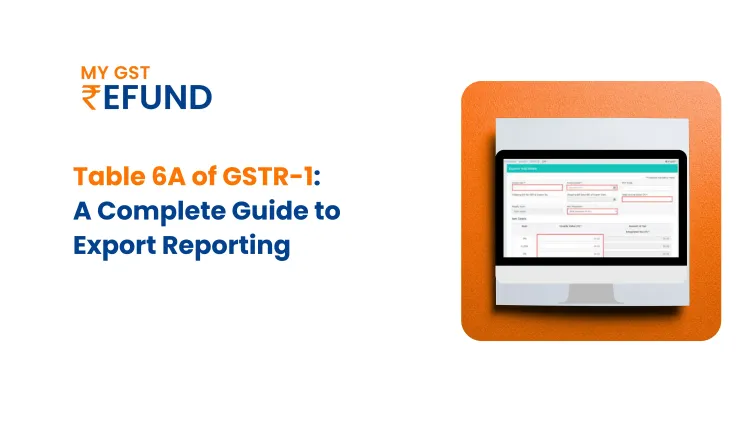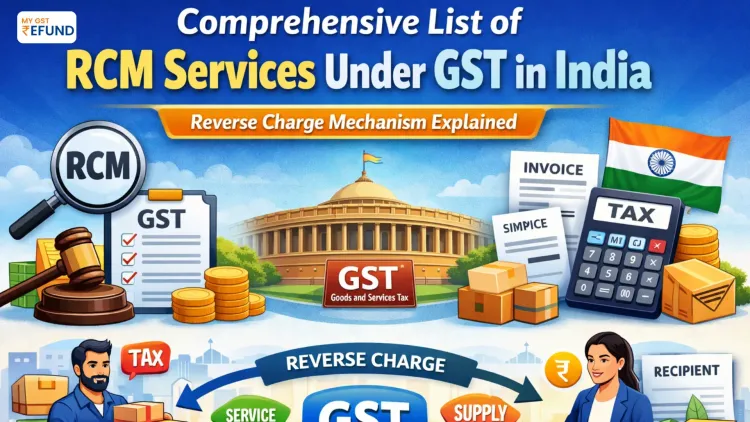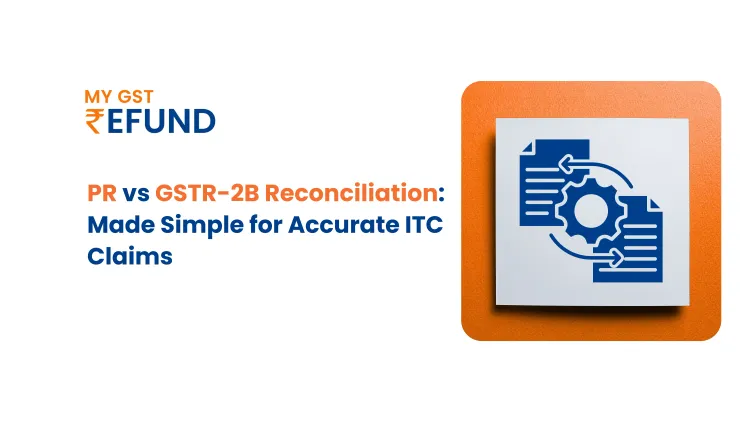GST Compliance Checklist
Published on: Tue Jan 02 2024
Bio (Reveal/Hide)

Staying compliant with the Goods and Services Tax (GST) is crucial for businesses in India to avoid penalties and legal repercussions. This comprehensive checklist guides you through the key aspects of GST compliance, ensuring you operate smoothly and efficiently.
What is GST Compliance?
GST compliance simply means adhering to the rules and regulations set forth by the Indian government for the GST regime. This includes registering for GST, filing returns on time, maintaining proper records, and paying taxes accurately. Non-compliance can lead to hefty fines, interest charges, and even prosecution.
What are the Compliance Requirements of GST?
Here are some key compliance requirements for businesses under GST:
- Registration: Businesses with an annual turnover exceeding Rs. 40 lakhs (Rs. 20 lakhs for certain states) must register for GST.
- Returns Filing: Different GST returns need to be filed at regular intervals, depending on your turnover and business type. Common returns include GSTR-1 (sales details), GSTR-3B (monthly/quarterly summary), and GSTR-9 (annual return).
- Invoice Issuing: All taxable supplies must be accompanied by a GST compliant invoice mentioning details like HSN/SAC code, tax rate, and tax amount.
- Record Keeping: Maintain proper records of all your GST transactions, including purchases, sales, and tax payments, for at least six years.
- Tax Payment: Pay your GST liability on time to avoid late payment penalties.
How Do I Check My GST Compliance?
Here are some ways to ensure you're GST-compliant:
- Regularly review your GST calendar: Mark important due dates for return filing and tax payments.
- Reconcile your accounts: Cross-check your GST records with your accounting books to identify any discrepancies.
- Utilize GST software: Use GST accounting software to automate compliance tasks and minimize errors.
- Seek professional advice: Consult a chartered accountant or tax advisor for expert guidance on complex GST matters.
What is a GST Compliant invoice?
A GST-compliant invoice is a crucial document in the Indian Goods and Services Tax (GST) regime. It serves as a legal record of the transaction between a supplier and a recipient, acting as proof of supply and enabling both parties to fulfill their tax obligations.
Here's what makes an invoice GST-compliant:
Mandatory inclusions: Certain details must be prominently mentioned on the invoice, including:
- Invoice number and date: Each invoice should have a unique serial number and be dated to track transactions chronologically.
- Name and address of the supplier and recipient: Clearly state the full names and addresses of both parties involved in the transaction.
- GSTIN of both parties: Include the 15-digit Goods and Services Tax Identification Number (GSTIN) of both the supplier and the recipient.
- Description of goods or services supplied: Provide a clear and concise description of the items or services provided.
- HSN/SAC code: Mention the Harmonized System of Nomenclature (HSN) code or the Service Accounting Code (SAC) for the supplied items. These codes categorize goods and services for tax purposes.
- Quantity and unit price of the items: Specify the quantity and unit price of each item listed on the invoice.
- Total taxable value: Calculate and state the total value of the taxable supplies before applying GST.
- Applicable tax rate (CGST, SGST, IGST): Depending on the location of the supplier and recipient, the applicable Central GST (CGST), State GST (SGST), or Integrated GST (IGST) rate should be mentioned.
- Total tax amount: Calculate and show the total GST amount payable based on the applied tax rate(s).
- Signature of the authorized signatory: The invoice must be signed by an authorized representative of the supplier.
What Documents are Required for a GST Audit?
During a GST audit, you may be required to provide the following documents:
- GST registration certificate
- PAN card and Aadhaar card of the proprietor/directors
- Bank statements
- Purchase and sales invoices
- Payment challans for tax payments
- Accounting ledgers and journals
What is TDS Compliance?
TDS Compliance refers to adhering to the regulations surrounding Tax Deducted at Source (TDS) in India. In simpler terms, it means fulfilling your obligations when it comes to deducting a part of the payment you make to someone else and depositing it directly with the government, acting as a tax collector at the source. It consists of:
Deduction: TDS (Tax Deducted at Source) is deducted by the buyer at the time of payment to the supplier for certain transactions under GST. The deducted amount is transferred to the government.
Rate: The TDS rate for GST is generally 2%, applied to the taxable value of the supply (excluding GST).
Threshold: TDS is applicable if the total value of a supply under a single contract exceeds Rs. 2,50,000.
Deductors: Government departments, PSUs, local authorities, and certain individuals are primary deductors under GST TDS provisions.
Example: A government department contracts a construction company for a project worth Rs. 30 lakhs. Upon making a payment of Rs. 15 lakhs to the company, the department deducts TDS of Rs. 30,000 (2% of Rs. 15 lakhs) and deposits it with the government.
Related Posts





